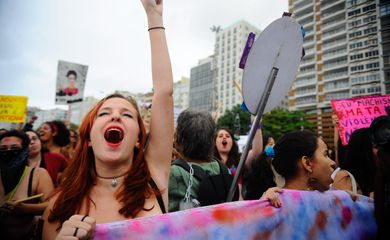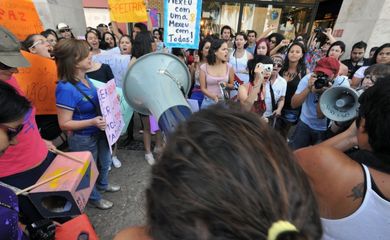Women driven away from electoral dispute by unsupportive parties


Figures further reveal that 25% of the women interviewed mentioned the lack of interest for politics, 19% noted how difficult it is to enter a dispute with a man, 7% complain about the lack of support from their families, and 5% say they would rather devote their time to household chores.

The lack of support from political parties is the main factor discouraging women from standing for election, reports a study published Thursday (Oct 2) by DataSenado. This is the justification uttered by 41% of female respondents for the low participation of women in the electoral process. Figures further reveal that 25% of the women interviewed mentioned the lack of interest for politics, 19% noted how difficult it is to enter a dispute with a man, 7% complain about the lack of support from their families, and 5% say they would rather devote their time to household chores.
“The great obstacle hindering the participation of women is how the parties are structured. They do not provide the conditions for women to compete neck and neck with men,” argued Thiago Cortez, special advisor at the Senate's Secretariat for Transparency.
The research also indicates that, for 83% of answerers of both sexes, the gender of a candidate plays no role when it comes to casting a vote. The study shows that 79% declared they have voted for a woman to take up a political position at some point in the past, and 20% have never done it. One percent do not know or did not answer.

Women demonstrate significant interest in politics. The study disclosed that 62% of them would like to become candidates if they believed they had good chances of winning.
Cortez regards as a major problem that, in spite of the assignment of 30% of openings to women determined by electoral law, parties that do not abide by this norm are not penalized. He claims political proposals that promote gender equality are met with the support of the majority of interviewees.
For 65% of the voters heard, the election of a female president has strengthened women's participation in national politics and encourages voters to choose women more often.
Women demonstrate significant interest in politics. The study disclosed that 62% of them would like to become candidates if they believed they had good chances of winning.
The setbacks mentioned above notwithstanding, for the first time in a nationwide election the number of female candidates is above the 30% required by the Electoral Law. Next Sunday (5), out of the 7,139 people running for a chair at the Chamber of Deputies, a mere 2,272 are women, against 4,867 men. Women's participation increased 11% compared to men's over the last 15 years. In 1998, in the polls to elect federal deputies, the number of women in the race was 10%. In 2010, the figure mounted to 19%. Today, it stands at 31%.
DataSenado held telephone interviews with 1,091 people from all Brazilian states, from August 12 to September 3. The margin of error is 3 percentage points and the reliability rate is 95%.
Translated by Fabrício Ferreira
Fonte: Women driven away from electoral dispute by unsupportive parties



